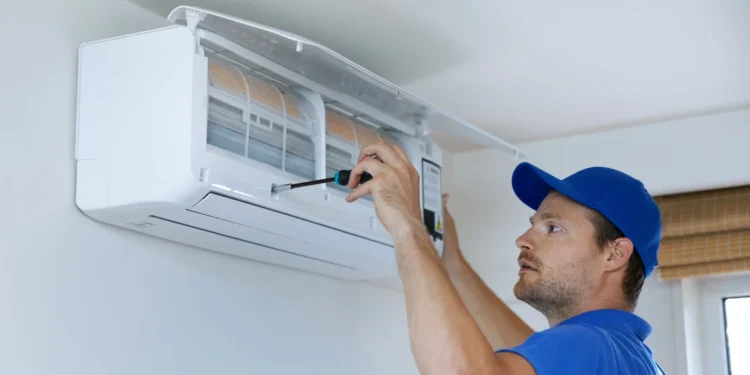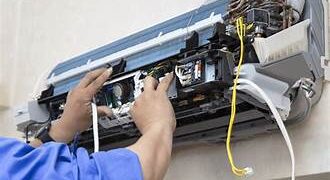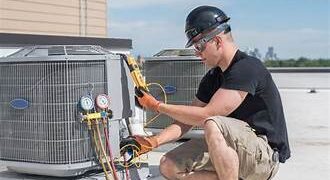Delving into the realm of annual HVAC maintenance cost, we uncover the essential aspects that homeowners need to know to ensure their systems run smoothly and efficiently. From understanding the importance of regular maintenance to exploring ways to minimize costs, this guide offers a holistic view of managing HVAC expenses effectively.
Importance of Annual HVAC Maintenance
Regular maintenance is essential for the longevity and optimal performance of your HVAC system. By scheduling annual maintenance, you can ensure that your system operates efficiently and effectively throughout the year.
Prevention of Costly Repairs
Regular maintenance helps identify and address minor issues before they escalate into major problems. This proactive approach can save you from expensive repairs down the line. By replacing worn-out parts or cleaning components during routine maintenance, you can prevent breakdowns and extend the lifespan of your HVAC system.
Impact of Neglecting Annual Maintenance
Neglecting annual HVAC maintenance can lead to a decline in system performance. Dust and debris accumulation can restrict airflow, causing your system to work harder and consume more energy. This inefficiency not only results in higher utility bills but also puts unnecessary strain on your HVAC components, leading to premature wear and tear.
Enhanced Energy Efficiency
During annual maintenance, HVAC technicians inspect and clean your system to ensure it operates at peak efficiency. A well-maintained HVAC system consumes less energy to heat or cool your home, reducing your carbon footprint and saving you money on energy costs in the long run.
Components of Annual HVAC Maintenance
Regular maintenance of your HVAC system is essential to ensure its optimal performance and longevity. Here are the key components typically included in annual HVAC maintenance:
Cleaning Filters, Coils, and Other Parts
Regularly cleaning filters, coils, and other components of your HVAC system is crucial for several reasons. Dirty filters can restrict airflow, reducing the system's efficiency and causing it to work harder to maintain the desired temperature. This can lead to increased energy consumption and higher utility bills.
Similarly, dirty coils can reduce the system's ability to transfer heat, resulting in inefficient operation. By cleaning these parts during annual maintenance, you can improve the system's performance, extend its lifespan, and ensure better air quality in your home.
Checking Refrigerant Levels and Electrical Connections
Checking refrigerant levels is a critical aspect of HVAC maintenance as low levels can indicate a leak, which can lead to system inefficiency and potential damage. Proper refrigerant levels are essential for the system to function effectively and maintain the desired temperature.
Additionally, inspecting and tightening electrical connections is crucial for safety and efficiency. Loose connections can lead to system malfunctions, increased energy consumption, and even pose a fire hazard. Regularly checking these connections during maintenance can prevent such issues and ensure the system operates smoothly.
Benefits of Regular HVAC Maintenance
Regular HVAC maintenance offers several benefits that can enhance the performance and longevity of your system. By investing in annual maintenance, you can enjoy improved energy efficiency, better indoor air quality, and increased comfort in your home or office.
Improved Energy Efficiency
Regular HVAC maintenance can significantly improve the energy efficiency of your system. By ensuring that all components are clean, lubricated, and functioning properly, you can reduce energy consumption and lower your utility bills. A well-maintained system can operate more efficiently, leading to cost savings in the long run.
Enhanced Indoor Air Quality and Comfort
Annual maintenance helps to keep your HVAC system clean and free of dust, debris, and pollutants. This can result in better indoor air quality, reducing the risk of respiratory issues and allergies
. Additionally, a well-maintained system can provide more consistent temperatures and better airflow, enhancing overall comfort in your living or working space.
Extended System Lifespan
One of the key benefits of regular HVAC maintenance is the extension of the system's lifespan. By addressing minor issues before they escalate into major problems, you can prevent premature wear and tear on your system. This proactive approach can help you avoid costly repairs or early system replacements, ultimately saving you money in the long term.
Factors Affecting Annual HVAC Maintenance Cost
When it comes to the cost of annual HVAC maintenance, several factors can influence the overall expenses. Understanding these factors can help homeowners and businesses budget effectively and plan for regular maintenance to keep their HVAC systems running smoothly.
Type and Age of the HVAC System
The type and age of the HVAC system play a significant role in determining maintenance costs. Older systems or those that require specialized parts may be more expensive to maintain due to the availability and cost of replacement parts. Additionally, newer systems with advanced technology may require specialized training for technicians, which can also impact maintenance costs.
Geographic Location and Local Service Provider Rates
The geographic location of a property can also affect annual HVAC maintenance costs. Areas with extreme weather conditions may put more strain on HVAC systems, leading to increased maintenance needs. Additionally, local service provider rates can vary depending on the cost of living in a particular area, as well as the level of competition among HVAC companies.
It's essential to consider these factors when budgeting for annual maintenance to ensure that the HVAC system remains in optimal condition without breaking the bank.
Tips for Reducing Annual HVAC Maintenance Costs
Reducing annual HVAC maintenance costs is essential for homeowners looking to save money while ensuring their system operates efficiently. By following these tips, you can lower your expenses and prolong the lifespan of your HVAC system.
Invest in a Maintenance Plan or Contract
One effective way to reduce annual HVAC maintenance costs is to invest in a maintenance plan or contract with a reputable HVAC company. These plans typically include regular inspections, tune-ups, and discounts on repairs. By paying a fixed fee upfront, you can avoid unexpected expenses and save money in the long run.
DIY Maintenance Tips
Performing some DIY maintenance tasks can help reduce the frequency of professional service calls and lower your overall maintenance costs. Here are some tips to keep your HVAC system running smoothly:
- Clean or replace air filters regularly to improve airflow and efficiency.
- Check and clean the outdoor unit to remove debris and ensure proper airflow.
- Inspect and clean the ductwork to prevent blockages and improve air quality.
- Adjust the thermostat settings to reduce energy consumption and wear on the system.
- Keep the area around the HVAC system clear of obstructions to allow for proper ventilation.
Conclusion
In conclusion, staying on top of annual HVAC maintenance not only prolongs the lifespan of your system but also saves you from unexpected repair bills down the line. By investing in routine upkeep and exploring cost-saving strategies, homeowners can enjoy a comfortable indoor environment without breaking the bank.
Common Queries
What are some DIY maintenance tips for HVAC systems?
Regularly cleaning or replacing filters, keeping outdoor units free of debris, and checking thermostat settings are simple tasks that can improve system efficiency and reduce maintenance costs.
How can geographic location impact annual HVAC maintenance costs?
Areas with extreme weather conditions may require more frequent maintenance or specialized services, leading to higher overall costs compared to regions with milder climates.
Is investing in a maintenance plan worth the cost?
While upfront costs may seem significant, maintenance plans often offer discounts on repairs and priority service, ultimately saving homeowners money in the long run.











